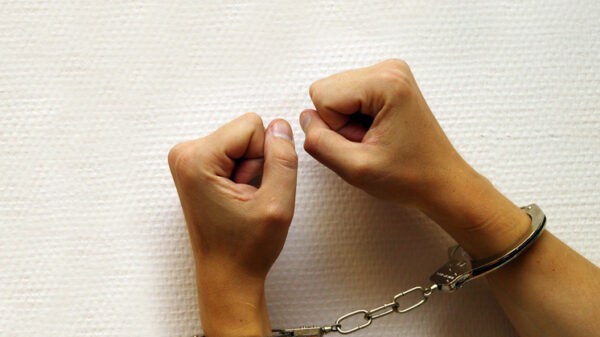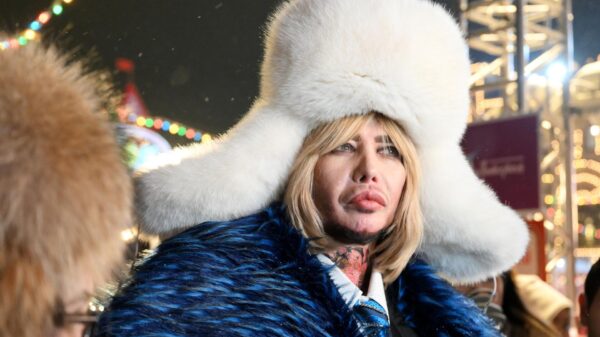
The Court of Arbitration for Sport (CAS) published a statement of reasons on Wednesday part of the case of Russian figure skater Kamila Valieva, who was disqualified for four years at the end of January for violating anti-doping rules. The Sport correspondent explains how it happened that the referees recognized the athlete as “trustworthy”, but did not find a way not to impose cruel punishment on her.
The reasoning part of the decision in the case of Kamila Valieva, which CAS published on 130 pages on Wednesday, does not contain any sensational revelations. This or that information has already broken into the information space through “sources familiar with the situation.” From what did not break through — the positive result of Valieva’s doping test, which she passed after a free program at the Russian Championships in St. Petersburg on December 25, 2021, it turns out, was ready on January 11, 2022 — almost a month before the start of the Beijing Olympics.
However, the Stockholm laboratory rechecked it many times, later explaining this as “unsatisfactory quality control.” The last recheck was made on February 4, 2022, after which the result was transmitted on February 7 to the ADAMS system, a digital resource used to administer anti-doping procedures. Just on the final day of the team tournament of the Games.
There is nothing left to do but admit that the laboratory did everything to feed the soil for the conspiracy theory. Especially if we assume that they were somehow able to find out who this positive sample belonged to. But let us not now step down the path of such conclusions. Perhaps this issue should be addressed by Russian lawyers ahead of the CAS process on the distribution of medals in the team tournament. If we suddenly manage to prove that by deliberately delaying the release of Valieva’s analysis results from the Stockholm laboratory, the attackers tried to frame the entire Russian team, this could work in our favor.
They didn’t believe in the strawberry dessert. But, alas, no procedural violations can — and could not — justify Kamila herself. According to the rules, in any case, she had to prove that the entry of the prohibited drug into the body was unintentional. And the document published by the court helps to understand why the three arbitrators did not believe the version about the strawberry dessert, through which, in the opinion of the figure skater, doping could have entered her body.
The key points in the figure skater's explanation are as follows. According to her, her grandfather (whose name is Gennady Solovyov, and he, in fact, is not her blood relative, but this is only a statement, the court did not take this fact into account when making a decision — author's note) prepared her a strawberry dessert, which she took with me from Moscow to the Russian Championship in St. Petersburg. Valieva said that in the morning «Sapsan» on December 22, 2021, she asked the conductors to put this dessert in the refrigerator, then, upon arrival in St. Petersburg, she left it in the refrigerator in the hotel room. On the same day, the athlete, according to her, ate part of the treat instead of lunch, and on December 23 — the day before the short program — instead of dinner. On December 25, she passed the fatal doping test. Camila's side suggested that the dessert accidentally contained a medicine containing trimetazidine, which her grandfather took.
As reported in the reasoning part of the decision, Valieva needed to demonstrate three things. The first is that her grandfather actually took trimetazidine in December 2021. The second is that this medicine somehow got into the dessert he prepared. And the third is that the athlete actually took it with her to the competition and ate it in the following days. However, on each of these points the judges had questions that could not be answered.
The only evidence of Camila's grandfather's use of trimetazidine is reportedly two medical records dated March and December 2022. No other documents were presented. The court notes that it could be taken into account — doctor's prescriptions, checks or bank card account statements, witness statements from pharmacies. None of this appeared in the case, nor any explanation as to why.
In addition, the court recalled the video evidence of Gennady Solovyov dated February 9, 2022, which was taken into account when lifting the temporary suspension from the skater. In it, Camila's grandfather says that he always took the pills, chewing them and washing them down with water. This is how the version about the glass through which the prohibited drug could enter her body was born.
But in that video there is no mention of strawberry dessert. It arose in the case three months later, when Soloviev stated that he crushed the tablets on a cutting board, and that is how their remains could get into the dish he prepared. However, that testimony does not say anything about the fact that the skater took dessert with her to the Russian Championship.
Information about this appeared in December 2022. But the court immediately casts doubt on them due to the lack of evidence from the conductor that he actually took the dessert from the skater in order to keep it in the refrigerator, as well as from passengers traveling in the same carriage, including fellow skaters. The main thing that the court did not believe in this place was that the athlete, who was well aware of the anti-doping precautions, put her food in the wrong hands for several hours, and then ate it the next days.
The judges also report why they did not believe the reason for Gennady Solovyov’s refusal to testify. They were declared as medical, but again no supporting documents were provided. But, as the arbitrators noted, in December 2021, if you believe the statements of the athlete’s side, her grandfather spent two hours every day to come to her home and take her to the skating rink, which was located 200 meters from the apartment. (Why this was necessary, Camila’s side explained this way — she was once chased by male fans who were trying to get acquainted).
The arbitrators also emphasize that according to the analysis of scientific experts, trimetazidine in the amount that was discovered could not have appeared in sample if it enters Valieva’s body in Moscow. The version about the dessert taken to the Russian Championship in St. Petersburg could help the athlete. But in view of all of the above, it was considered implausible.
The case involved statements by the International Skating Union (ISU) and the World Anti-Doping Agency (WADA) that they considered Valieva’s intake of trimetazidine intentional. The CAS arbitrators emphasized that it was not their duty to consider the facts allegedly in favor of this, since, according to the rules, the need to confirm the opposite lay with the athlete.
But at the same time, CAS noted that the facts supporting the version of deliberate admission are unconvincing. For example, claims that trimetazidine has an effect in combination with hypoxen and L-carnitine, also found in Valieva’s body, have not been scientifically confirmed. The case of doping by athletes with whom Dr. Philip Shvetsky, the doctor of the Russian team at the 2022 Olympic Games, worked, also does not prove anything. Also, the panel did not consider significant the statements of some witnesses from WADA that trimetazidine is recommended for use by athletes in the Russian scientific literature.
However, all this does not negate the fact, as reported in the reasoning, that the arbitrators were not convinced by the main thing — Valieva’s explanation related to the dessert prepared by her grandfather. “It is certainly possible that trimetazidine entered the athlete’s body in this way. But “possibly” does not mean “probably,” the release says. And therefore, the judges considered that the athlete could not prove the unintentionality of taking a prohibited substance in order for the court to could consider her guilt insignificant.
Honesty and intelligence are not a reason for justification. Towards the end of the document, emotional moments appear quite unexpectedly, which in no way correlate with the general dry legal tone of the text. “It should be noted that the panel found the athlete to be an honest, straightforward and credible witness. Her statements of innocence are plausible. She is obviously an intelligent and eloquent girl,” the statement of reasons says.
But the judges further state that this is not enough to exempt from liability. And, somewhere, even, it seems, slightly apologizing, they explain why they could not find an opportunity to apply a more lenient punishment to Kamila than four years of disqualification. To do this, according to the rules, the skater had to prove minor guilt or negligence — or their absence, which, according to the arbitrators, she failed to do. Also, for a more lenient punishment, Valieva could not be helped by her status as a “protected person” — as the court stated, the anti-doping rules in this case still do not provide for mitigation.
In the final part, the judges emphasize a number of important points. “According to the decision of the panel, the athlete failed to fulfill her obligation to prove the unintentionality of the entry of a prohibited substance into her body. To do this, as the panel emphasized, is difficult, as this case confirmed. But it does not follow from this, and the arbitrators certainly did not come to this conclusion conclusion that Valieva is a liar or that she cheated on December 25, 2021 or that she cheated at the Olympic Games in Beijing or elsewhere,» the statement said.
«»The appellants (ISU, WADA and RUSADA) did not establish the fact that the athlete took doping intentionally, and they were not obliged to do so. It must be admitted that the conclusions of the RUSADA investigation (and to a lesser extent WADA) indicate that there is no evidence that she acted intentionally,” the document also states.
Finally, the judges stated that the position that such a harsh punishment for a 15-year-old athlete was inappropriately disproportionate to the violation had a right to exist. However, they noted that they acted in accordance with the rules, and if changes in sanctions for young athletes are truly necessary, then they should be adopted by legislative bodies, not the judiciary.
Alas, Kamila Valieva, these changes — if, based on her case, they will be accepted — they will no longer help. She is out of big sport until December 2025, unless, of course, her lawyers find compelling reasons to challenge the CAS verdict in the Swiss Federal Court. And the gold medals of the Russian team will be the subject of a new trial. But that will be another story.


























































Свежие комментарии